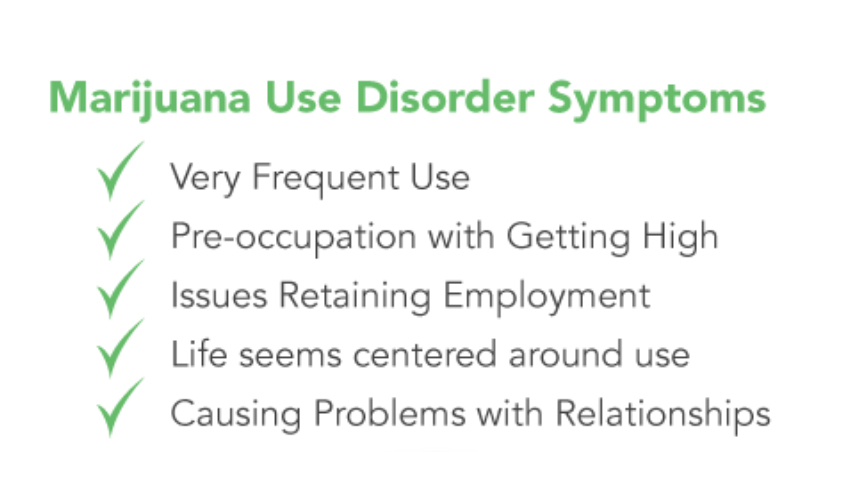In recent years, the debate surrounding the legalization and use of weed has intensified. While many tout its medicinal benefits and recreational appeal, there’s an aspect that often gets overshadowed: its addictive properties. Despite its reputation as a “soft” drug, weed can indeed lead to addiction in some individuals.
The High and the Addiction
Cannabis contains tetrahydrocannabinol (THC), the psychoactive compound responsible for the “high” user’s experience. This high creates a euphoric feeling, relaxation, altered perception of time, and increased sensory experiences. For many, these effects are pleasurable and relatively harmless. However, for some, they can become the beginning of a cycle of dependency.
Understanding Addiction
Addiction involves compulsive drug use despite negative consequences. While not everyone who uses cannabis will become addicted, certain factors increase the risk:
- Genetics: Genetic predisposition plays a significant role in addiction. Some individuals have a higher likelihood of developing a substance use disorder, including cannabis addiction, due to their genetic makeup.
- Early Exposure: Adolescents and young adults are particularly vulnerable to addiction. Early exposure to cannabis can disrupt brain development, increasing the risk of addiction later in life.
- Environmental Factors: Factors such as peer pressure, social environment, and availability of weed can influence addiction risk.
- Mental Health: Individuals with mental health issues like depression, anxiety, or trauma are more susceptible to addiction. Weed use might be an attempt to self-medicate, which can lead to dependency.

The Cycle of Dependency
What starts as occasional use can quickly escalate into a habit and then a full-blown addiction. The cycle of dependency often follows a pattern:
Initial Use:
It often starts innocently enough—a joint passed around at a party, a friend offering a hit from their vape pen, or a curiosity-driven experiment. The individual tries cannabis, perhaps out of curiosity or to join in with peers, and experiences the euphoric effects. Initially, there are no significant negative consequences, and the experience may even be enjoyable.
Regular Use:
As the initial novelty wears off, some individuals find themselves returning to weed more frequently. This can be driven by various factors, such as stress relief, enhanced social experiences, or simply a desire to recreate the pleasurable sensations they felt initially. They might start using cannabis on weekends, then progress to using it during the week as well.
Tolerance Development:
With regular use, the body builds up a tolerance to THC, the main psychoactive compound in cannabis. As a result, the individual requires larger doses or more potent strains to achieve the same high they experienced initially. This escalating pattern of consumption and lead to more frequent use.
Dependency:
At this stage, weed starts to play a more central role in the individual’s life. They may find themselves relying on it to cope with stress, anxiety, or other emotional issues. Cannabis becomes a crutch for managing daily life, whether it’s to unwind after a long day, alleviate boredom, or escape from problems. The individual may experience cravings and feel unable to function without weed. Additionally, the individual may start to experience withdrawal symptoms when not using cannabis. The discomfort of withdrawal often drives the individual back to using weed to relieve these symptoms, perpetuating the cycle of dependency.
Addiction:
At this critical stage, weed use has evolved from a recreational activity to a compulsive behaviour. Despite experiencing negative consequences on their health, work, relationships, or legal status, the individual continues to use cannabis compulsively. They may find themselves spending a significant amount of time and money on acquiring and using weed, neglecting other responsibilities and activities. Failed attempts to cut down or quit are common at this stage. Even when the individual recognizes the harmful impact of their cannabis use, they struggle to break free from its grip.
Seeking Help
If you or someone you know is struggling with cannabis addiction, it’s essential to seek help. Treatment options include therapy, support groups, and inpatient or outpatient rehabilitation programs. With the right support, recovery from weed addiction is possible.

Veda Rehabilitation and Wellness
Veda stands out as the best choice for rehabilitation due to its holistic approach, individualized care, and proven track record of success. Veda focuses on treating the whole person, addressing not only the physical aspects of addiction but also the mental, emotional, and spiritual dimensions. Their team of experienced professionals, including doctors, therapists, and counsellors, tailor treatment plans to meet the unique needs of each individual. Veda understands that addiction is a complex issue, often intertwined with underlying trauma, mental health disorders, or unhealthy coping mechanisms. By providing comprehensive care, Veda equips patients with the tools and support they need to heal and thrive in recovery.
Follow the link below to start your journey towards addiction free life
Luxury Rehab Centre in India for Addiction & Mental Health Treatment (vedawellnessworld.com)

